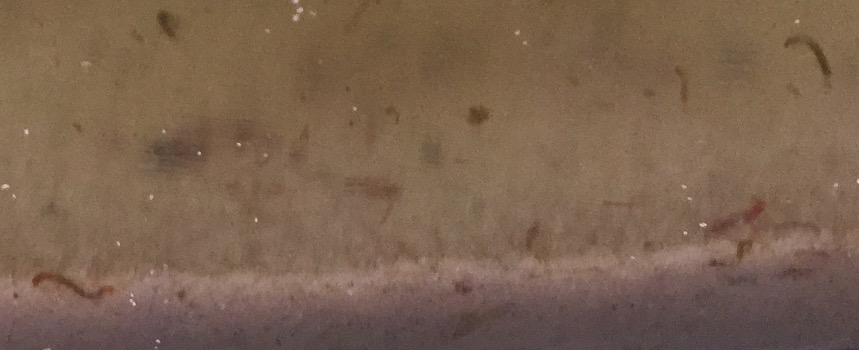In this post, Mirco Bundschuh talks about their recently published paper “The mode of bioturbation triggers pesticide remobilization from aquatic sediments”.

Chironomids burrowing in the sediment (photo by S. Lüderwald)
Pesticides enter aquatic ecosystems via multiple pathways posing risks for the integrity of these systems. During their aquatic life cycle some pesticides may – driven by the substance specific physicochemical properties – bind to sediments, which is often considered as a sink for these pollutants. Benthic invertebrates, however, may remobilize the bound pesticides from the sediments – a process, which is not well understood but may be influenced by the abundance and behavior (such as the mode of bioturbation) of the species but also the pesticides properties. The present study, indeed, supported this idea and suggests that sediments are not per definition a sink for pesticides. At the same time, the rates of pesticide remobilization are limited. Thus, the risk for aquatic communities posed by the remobilization of pesticides from the sediment due to bioturbation is, if considered as an individual pathway, rather low.
The paper was authored Mirco Bundschuh, Marco Schlez and Willem Goedkoop and is published in Ecotoxicology and Environmental Safety.
Liked this post? You may also be interesetd in: Wetlands in the landscape reduce fungicide pollution
